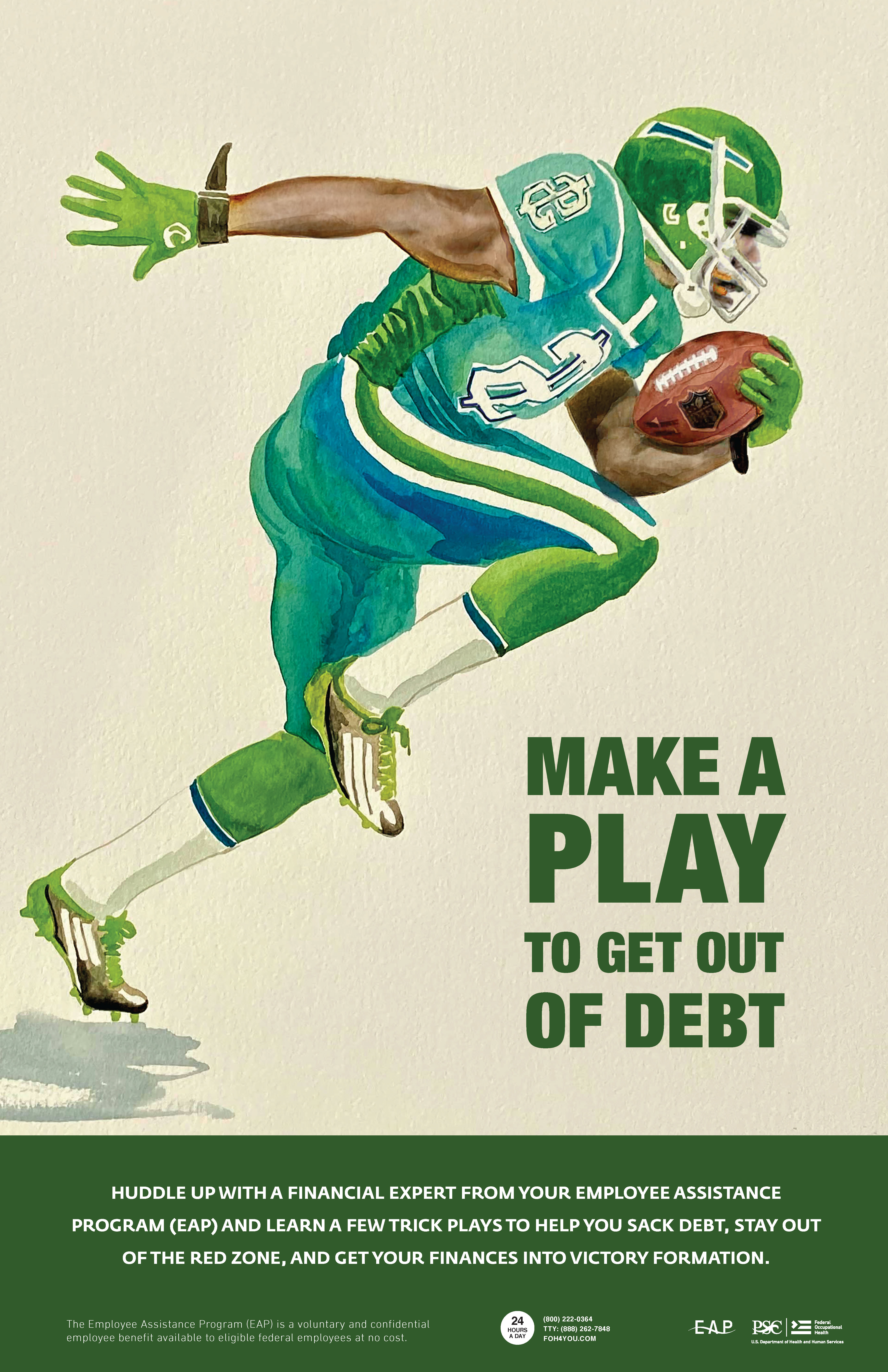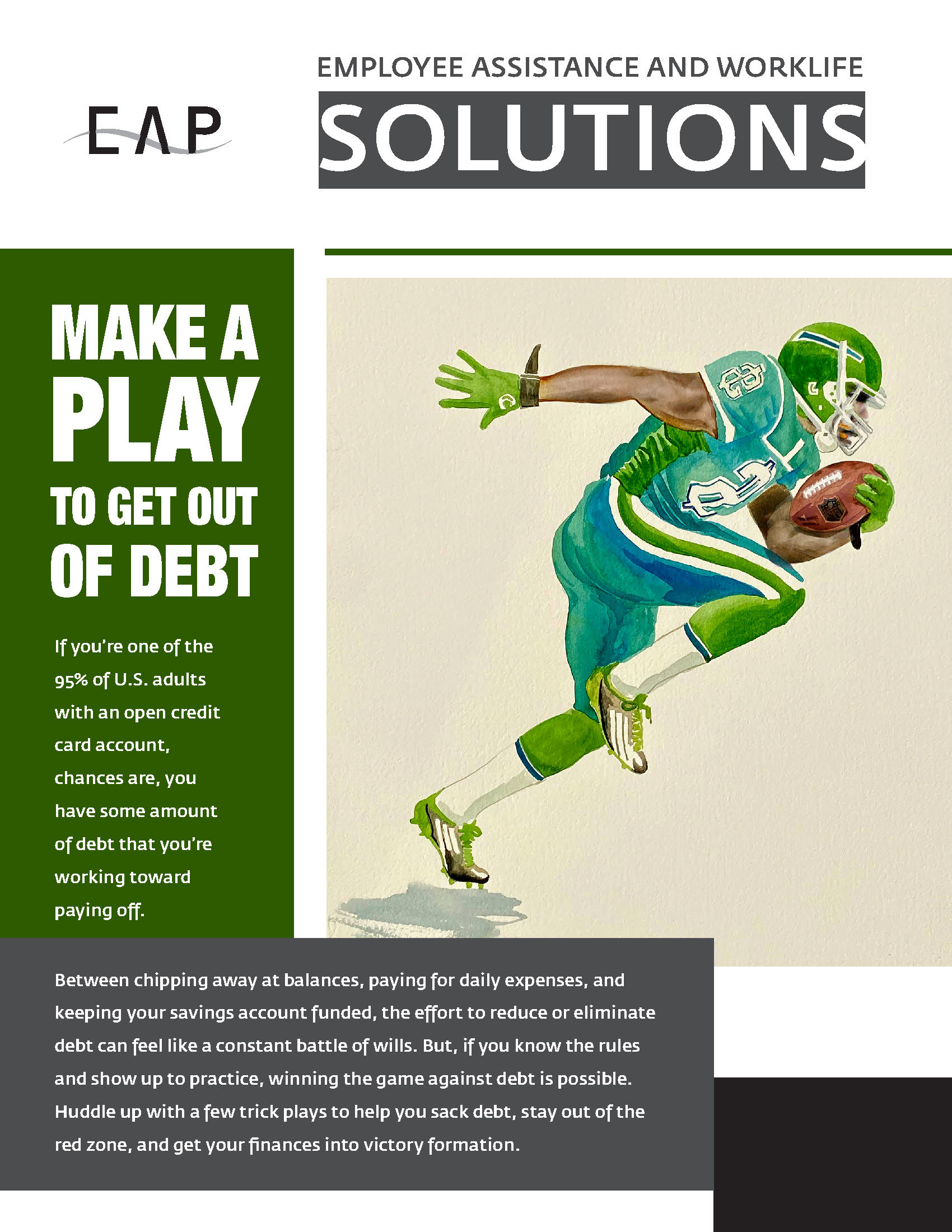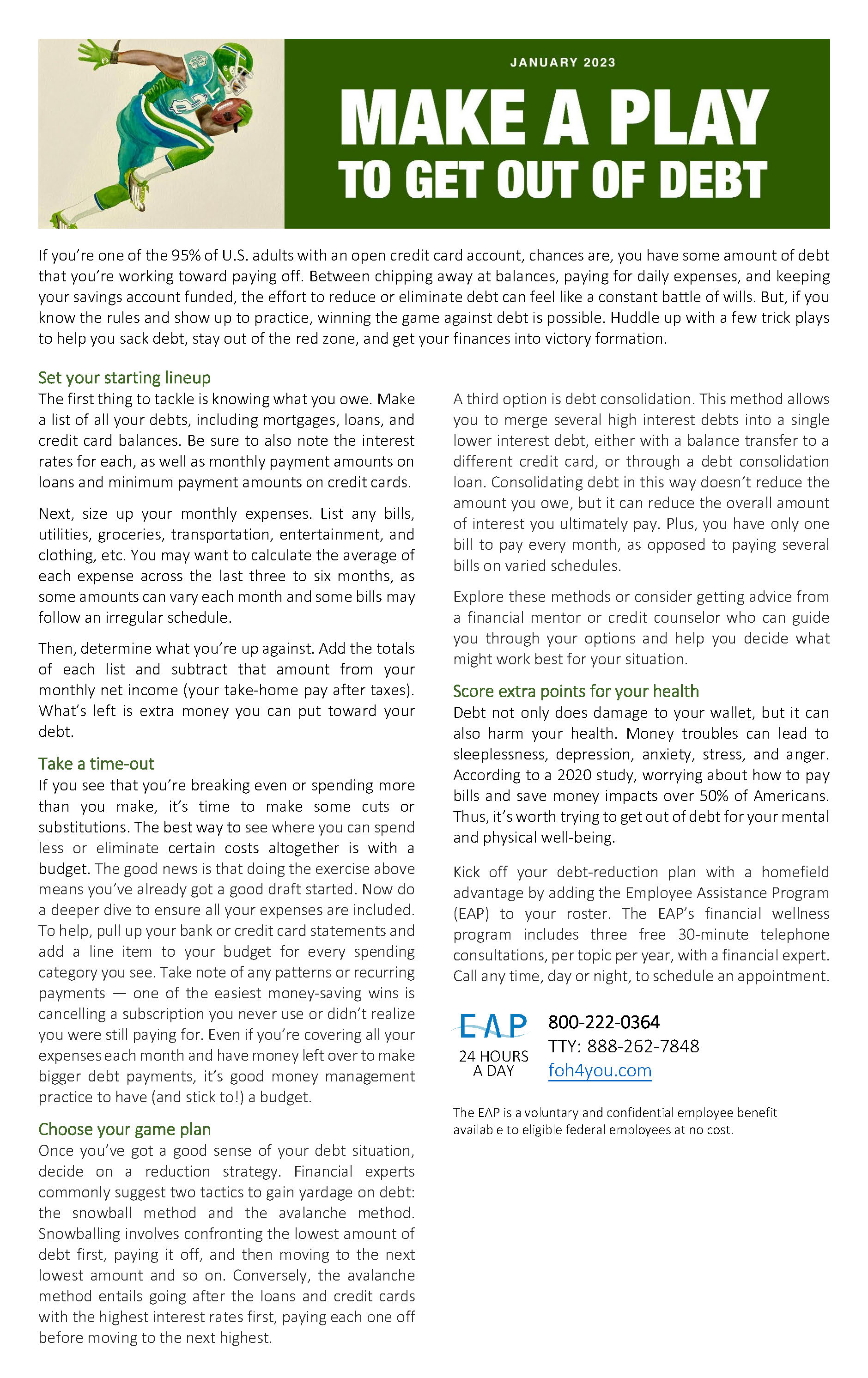
If you’re one of the 95% of U.S. adults with an open credit card account, chances are, you have some amount of debt that you’re working toward paying off. Between chipping away at balances, paying for daily expenses, and keeping your savings account funded, the effort to reduce or eliminate debt can feel like a constant battle of wills. But, if you know the rules and show up to practice, winning the game against debt is possible. Huddle up with a few trick plays to help you sack debt, stay out of the red zone, and get your finances into victory formation.
Set Your Starting Lineup
The first thing to tackle is knowing what you owe. Make a list of all your debts, including mortgages, loans, and credit card balances. Be sure to also note the interest rates for each, as well as monthly payment amounts on loans and minimum payment amounts on credit cards. Next, size up your monthly expenses. List any bills, utilities, groceries, transportation, entertainment, and clothing, etc. You may want to calculate the average of each expense across the last three to six months, as some amounts can vary each month and some bills may follow an irregular schedule. Then, determine what you’re up against. Add the totals of each list and subtract that amount from your monthly net income (your take-home pay after taxes). What’s left is extra money you can put toward your debt.
Take a Time-Out
If you see that you’re breaking even or spending more than you make, it’s time to make some cuts or substitutions. The best way to see where you can spend less or eliminate certain costs altogether is with a budget. The good news is that doing the exercise above means you’ve already got a good draft started. Now do a deeper dive to ensure all your expenses are included. To help, pull up your bank or credit card statements and add a line item to your budget for every spending category you see. Take note of any patterns or recurring payments — one of the easiest money-saving wins is cancelling a subscription you never use or didn’t realize you were still paying for. Even if you’re covering all your expenses each month and have money left over to make bigger debt payments, it’s good money management practice to have (and stick to!) a budget.
Choose Your Game Plan
Once you’ve got a good sense of your debt situation, decide on a reduction strategy. Financial experts commonly suggest two tactics to gain yardage on debt: the snowball method and the avalanche method. Snowballing involves confronting the lowest amount of debt first, paying it off, and then moving to the next lowest amount and so on. Conversely, the avalanche method entails going after the loans and credit cards with the highest interest rates first, paying each one off before moving to the next highest. A third option is debt consolidation. This method allows you to merge several high interest debts into a single lower interest debt, either with a balance transfer to a different credit card, or through a debt consolidation loan. Consolidating debt in this way doesn’t reduce the amount you owe, but it can reduce the overall amount of interest you ultimately pay. Plus, you have only one bill to pay every month, as opposed to paying several bills on varied schedules. Explore these methods or consider getting advice from a financial mentor or credit counselor who can guide you through your options and help you decide what might work best for your situation.
Score Extra Points for Your Health
Download the Campaign
|
Poster |
PDF Newsletter |
Plain Text Newsletter |
|
Kick off your debt-reduction plan with a homefield advantage by adding the Employee Assistance Program (EAP) to your roster. The EAP’s financial wellness program includes three free 30-minute telephone consultations, per topic per year, with a financial expert. Call any time, day or night, to schedule an appointment. 24 HOURS A DAY
The EAP is a voluntary and confidential employee benefit available to eligible federal employees at no cost. |




